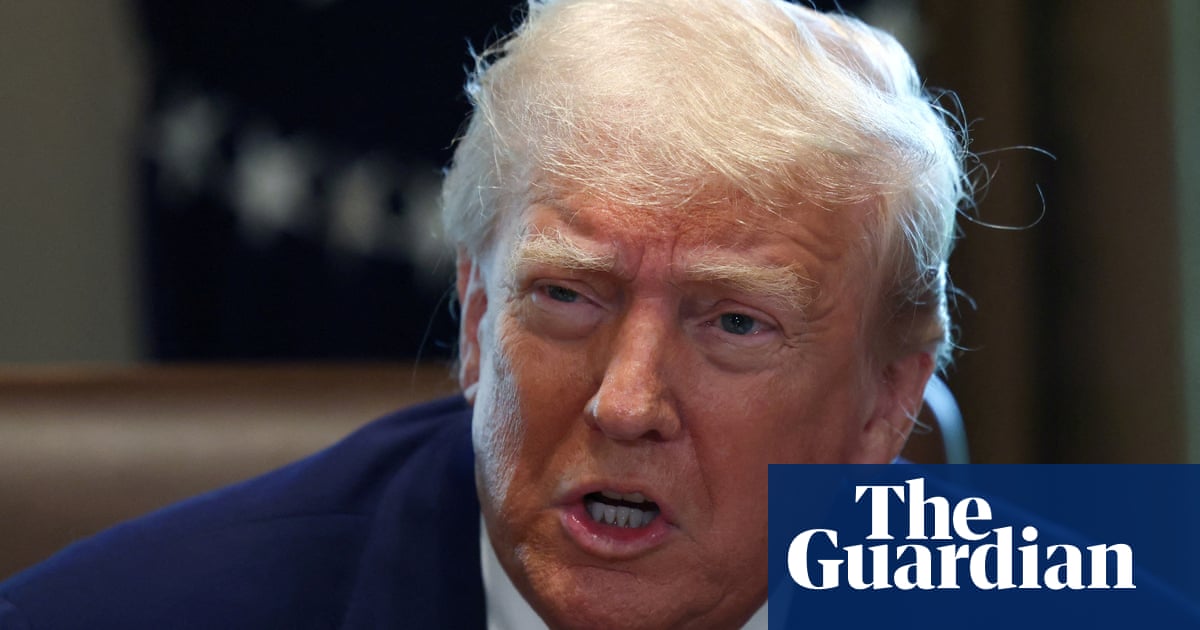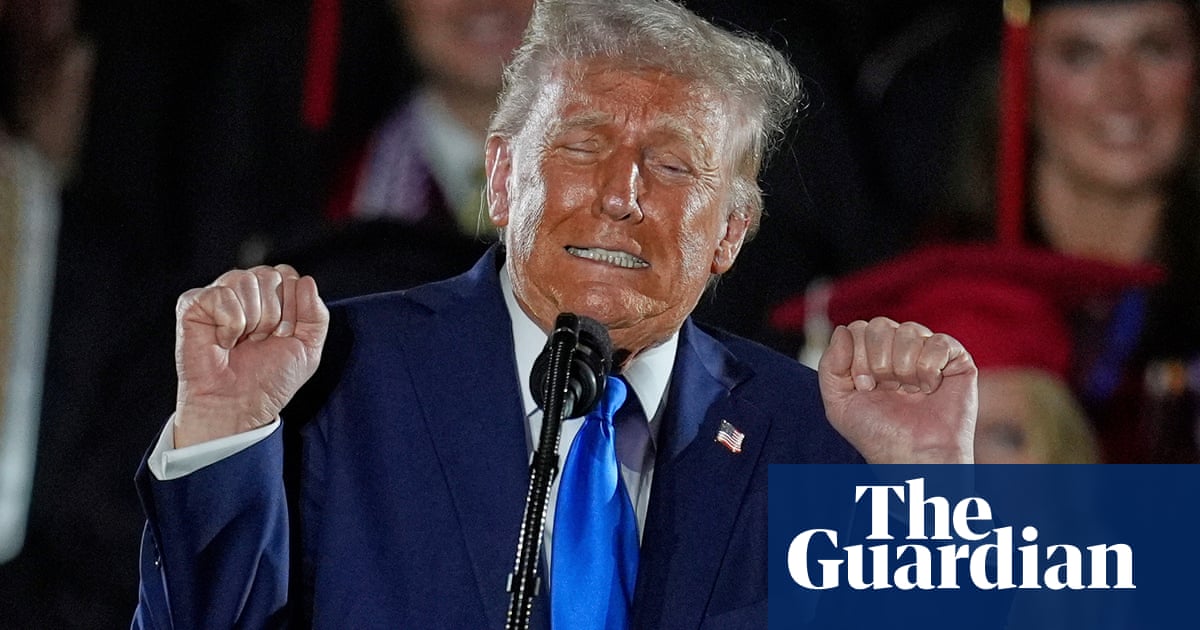The heads of embattled US public broadcasters, National Public Radio (NPR) and the Public Broadcasting Service (PBS), defended themselves against efforts by the Trump administration to cut off taxpayer funding, with both telling a Sunday political talk show they were looking at legal options.
PBS chief executive, Paula Kerger, told CBS News’s Face the Nation that Republican-led threats to withdraw federal funding from public broadcasters had been around for decades but are “different this time”.
Kerger said: “They’re coming after us on many different ways … we have never seen a circumstance like this, and obviously we’re going to be pushing back very hard, because what’s at risk are our stations, our public television, our public radio stations across the country.”
Donald Trump last week issued an executive order blocking NPR and PBS from receiving taxpayer funds through the Corporation for Public Broadcasting (CPB).
The White House said that unlike in 1967, when the corporation was established, the media landscape is now filled with news options and the concept of government funded news media was “not only outdated and unnecessary but corrosive to the appearance of journalistic independence”.
The order added: “Which viewpoints NPR and PBS promote does not matter. What does matter is that neither entity presents a fair, accurate, or unbiased portrayal of current events to taxpaying citizens.”
On Sunday, Kerger warned that some stations in smaller communities across the US could lose 40 to 50% of their funding. “And for them, it’s existential, and that’s what’s at risk if this funding goes away,” she said.
NPR chief executive, Katherine Maher, who like Kruger was grilled by Republicans on Capital Hill last month over claims that programing at both operations was politically-biased, said her organization is “looking at whatever options are available to us”.
But she added: “I think it’s a little preliminary for us to speak to the specific strategies that we might take.”
Maher warned that the impact to local radio stations was immediate, “especially in a time where we’re seeing an advance of news deserts across the nation, 20% of Americans don’t have access to another local source of news. The impact of this could really be devastating, particularly in rural communities.”
But the NPR boss also sought to resist the US president’s claims that her operation is left-leaning and pointed to reluctance by Trump administration officials to come on NPR shows.
The point of public broadcasting, Maher said, is to “bring people together in those conversations and so, we have had a whole host of conservative voices on air of late”.
Maher added: “We’ve been making requests of the Trump administration to have their officials air. We would like to see more people accept those invitations. It’s hard for us to be able to say we can speak for everyone when folks won’t join us.”
after newsletter promotion
In a university commencement address in Alabama last week, Trump told journalism majors that he’s not sure he likes the press, but acknowledged a free press is important even though he has repeatedly called American journalists “enemies of the people”.
“We need a brilliant press. They’re like a watch-keeper. They’re very important. And you can go out and take it down a new track. Help save the country. The people of this country, they know the truth when they hear it. That’s why the ratings, the approval numbers of the media, are so low.”
However, ongoing arguments over media bias and threats to defund public broadcasters put children’s programming is at risk, including those that are not enrolled in formal pre-K schooling, Kerger warned on CBS.
“That was the idea of Sesame Street and Mister Rogers, and everything that has followed since, is to make sure that children that do not have an access to a full array of resources have the opportunity to learn … That’s what’s at risk.” she said.

 German (DE)
German (DE)  English (US)
English (US)  Spanish (ES)
Spanish (ES)  French (FR)
French (FR)  Hindi (IN)
Hindi (IN)  Italian (IT)
Italian (IT)  Russian (RU)
Russian (RU)  4 hours ago
4 hours ago
























Comments